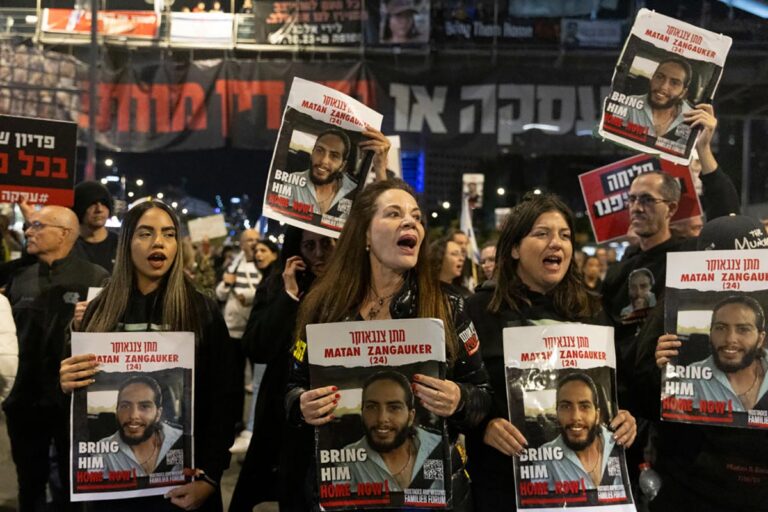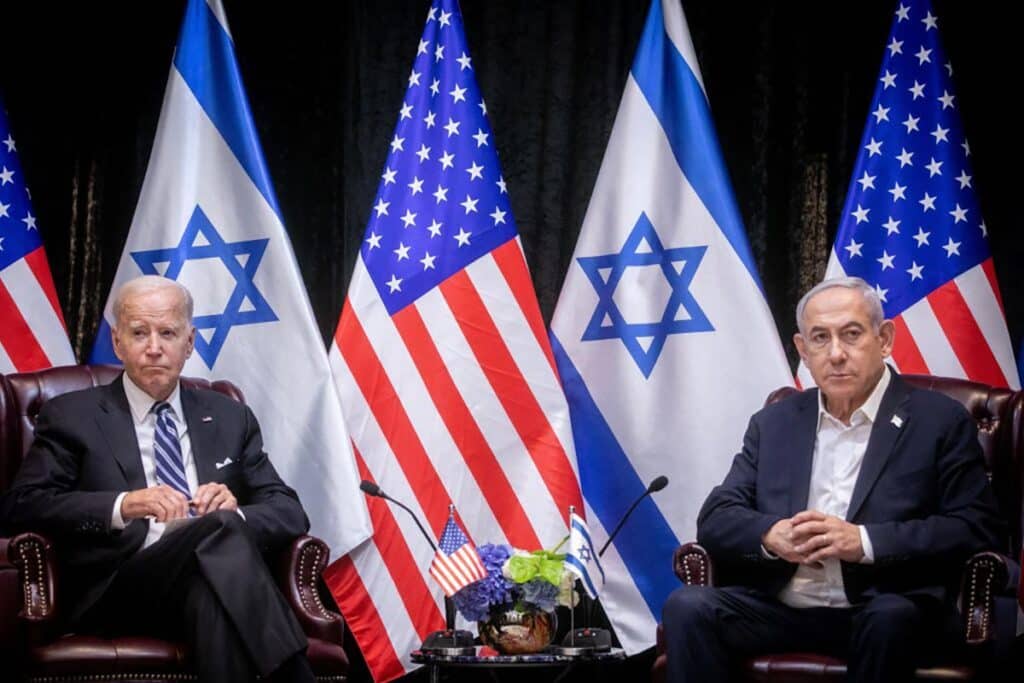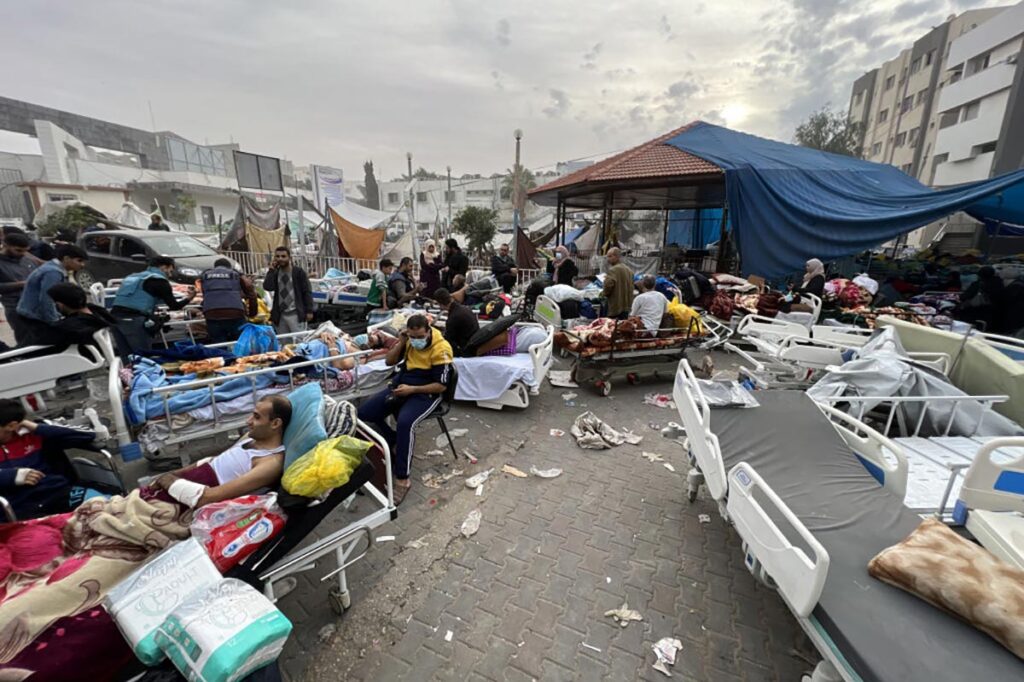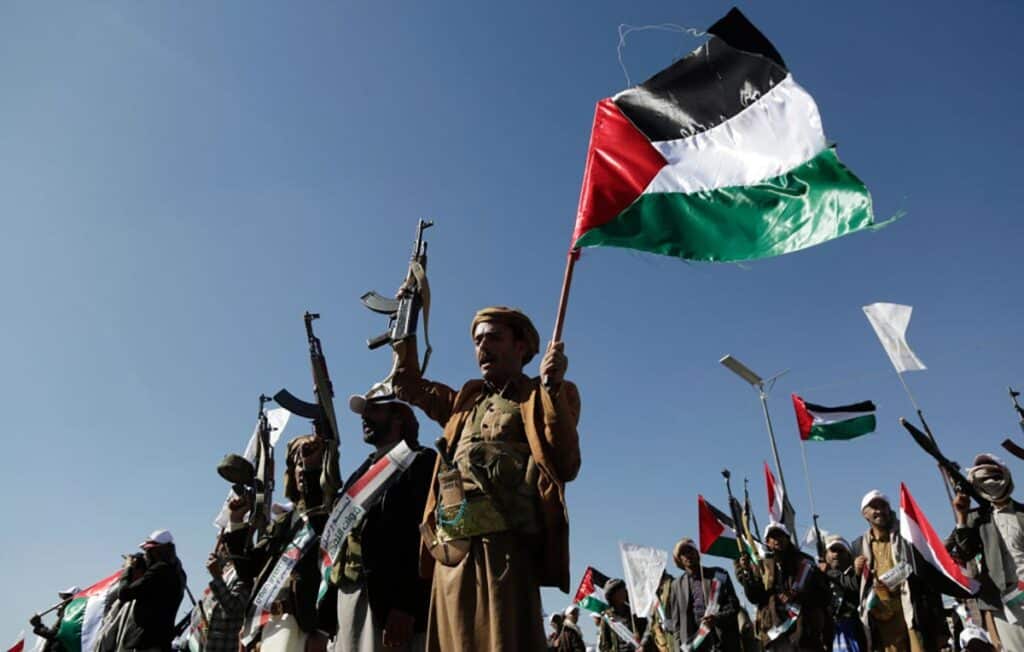
The war between Hamas and Israel has surpassed 167 days, with each week bringing new stories of both tragedy and hope.
Here are the main stories from this past week.
1. Hostage talks resume, Hamas reportedly softens demands

An Israeli delegation led by Mossad chief David Barnea departed for Qatar on Monday to renew efforts to reach a ceasefire and hostage release deal with Hamas.
The move to resume negotiations followed reports that Hamas withdrew its demand for an immediate and permanent end to the war in Gaza, a condition Israel has made clear is a non-starter.
In the first phase of Hamas’s latest proposal, fighting would cease for six weeks and some of the hostages would be released in exchange for hundreds of Palestinian prisoners. However, a sticking point remains: Hamas is also demanding the authority to select which prisoners are freed and that Israel allow Palestinians to return to northern Gaza during the ceasefire.

Israel, on the other hand, is opposed to allowing a full return of displaced Palestinians to northern Gaza, although they are willing to consider a partial return of women and children.
Israel “doesn’t want men of fighting age to return north because it fears Hamas fighters will use that opportunity to regroup there,” The Wall Street Journal reported.
“Israel is also concerned about permitting civilians to re-enter an active battle space as Israel struggles to chase down the remnants of Hamas’s northern Gaza battalions,” the newspaper added.
According to KAN, Israel’s main goal is to get Hamas to agree to a six-week ceasefire in which 40 hostages would be released.
Why it matters: Hostage talks have repeatedly hit a brick wall in recent months, with both Israel and Hamas entrenched in mutually exclusive demands.
Hamas’s decision to back down from some of their demands opened the door for talks to resume. However, there remains skepticism about the likelihood of success. Hamas official Osama Hamdan said on Wednesday that Israel’s reaction to their demands so far had been “negative” and has even withdrawn previous approvals given to mediators.
2. Biden and Bibi talk Rafah, Trump weighs in

U.S. President Joe Biden and Israeli Prime Minister Benjamin Netanyahu spoke for the first time in over a month on Monday as the two continue to clash over several issues concerning the war in Gaza.
According to a White House readout, the two leaders discussed ceasefire talks in Qatar and the humanitarian crisis in Gaza. Biden stressed that the flow of aid into Gaza needs to “significantly increase” and expressed “deep concerns” about a possible Israeli operation in Rafah.
Netanyahu stated after the call that both leaders agree that Hamas needs to be eliminated, but added that “it is no secret, there have been disagreements between us on the best way to achieve this goal.” The prime minister said he told Biden that there’s no way to eliminate Hamas without entering Rafah.
Netanyahu also announced that Israel would send a delegation to the U.S. to discuss the planned operation in Rafah.
In related news, former U.S. President Donald Trump commented in an interview last Sunday that he would advise Netanyahu to quickly finish the war in Gaza. He further accused Biden and Senate Majority Leader Chuck Schumer of turning on Israel, following Schumer’s controversial speech on the Senate floor.
Trump also sparked controversy with his statement that, “Any Jewish person that votes for Democrats hates their religion. They hate everything about Israel and they should be ashamed of themselves.”
Digging deeper: The call between Biden and Netanyahu comes after weeks of tense relations between the two leaders. Last week, Biden said that Netanyahu was “hurting Israel more than helping Israel,” with Netanyahu responding that his policies are “supported by the overwhelming majority of the Israelis.”
According to Axios, Biden told Netanyahu during their call on Monday that he was not trying to undermine him politically.
3. Canada halts arms sales to Israel

Canadian Foreign Minister Mélanie Joly announced on Monday that Canada would be ceasing future arms exports to Israel, after the Canadian House of Commons passed a resolution which called for such a step.
The resolution urged the government to “cease the further authorization and transfer of arms exports to Israel to ensure compliance with Canada’s arms export regime.” It also demanded an immediate ceasefire in Gaza, the release of the hostages, and a path to a two-state solution.
One member of Canada’s parliament, Melissa Lantsman, spoke out:
While in Canada they chose to slander Israel and decided on an arms embargo against Israel, one member of parliament, Melissa Landsman, continues to fight for us and is loyal to justice and truth! pic.twitter.com/Bm0uV9IEMr
— יוסף חדאד – Yoseph Haddad (@YosephHaddad) March 21, 2024
While the resolution was non-binding, Joly stated that the government was treating it as “a real thing.” On the heels of this announcement, a major Canadian newspaper published an antisemitic cartoon amid a dramatic rise in antisemitism in Canada since Oct. 7.
On the heels of Canada’s announcement that they will stop permitting military equipment to Israel, a major Canadian newspaper today published a virulently antisemitic cartoon.
— Hen Mazzig (@HenMazzig) March 20, 2024
The cartoon features Bibi Netanyahu’s face on the body of the vampire from the 1922 film Nosferatu.… pic.twitter.com/55e54sm39B
Why it matters: While Canada’s arms exports to Israel are relatively negligible, Israel is concerned about the symbolism of the move which could spark a domino effect. Other countries, such as the Netherlands, have indicated that they could restrict or halt arms exports as well.
European Union Foreign Policy Chief Josep Borrell even suggested in February that allies of Israel should “provide less arms” to Israel if they want the war to end.
4. IDF enters Shifa as Hamas uses hospital as command center again

The IDF re-entered Shifa Hospital in northern Gaza on Monday, citing intelligence indicating that senior Hamas leaders were once again using the hospital as a command center.
As of Thursday, approximately 650 terrorists from Hamas and Palestinian Islamic Jihad had been arrested and about 140 terrorists had been killed in clashes, according to the IDF.
Among the senior Hamas members found at the hospital were Hamas’s Interior Ministry Operations Chief Faack Mabhouh and Mahmoud Kawasme, one of the terrorists behind the kidnapping and murder of three Israeli teenagers in 2014.
Watch IDF Spokesperson RAdm. Daniel Hagari deliver an operational update about the ongoing operation within Shifa Hospital: pic.twitter.com/SKW1hz1mqP
— Israel Defense Forces (@IDF) March 20, 2024
The re-entry into the hospital sparked alarm from world leaders, with World Health Organization chief Tedros Adhanom Ghebreyesus saying he was “terribly worried” about the situation.
Why it matters: The re-entry into the hospital comes four months after the IDF conducted another operation in the hospital and cleared it of terrorist infrastructure.
The fact that senior Hamas and Palestinian Islamic Jihad terrorists, as well as hundreds of other terrorists, were able to set up shop again in the hospital is seen as an indication that the conflict in Gaza is far from over.
In contrast to the first operation, Palestinian media openly reported that combatants were inside the hospital, stating that they were engaging in clashes as Israeli forces entered.
5. Houthi missile lands in Israel

A Houthi cruise missile fell north of Eilat on Sunday, with the IDF saying the missile infiltrated into Israel from the direction of the Red Sea. No damage or injuries were caused in the incident.
Read more: Who are the Iran-backed Houthis in Yemen?
Initially, the IDF only said that a “suspicious aerial object” had fallen in the area, adding that the object had been monitored by the Air Force before falling in the area.
On Tuesday, the IDF clarified that the object was a cruise missile originating from the direction of the Red Sea. While the statement did not specify that the missile was launched by the Iran-backed Houthis in Yemen, they are currently the only force known to be firing cruise missiles at Israel from that direction. The Houthis also claimed responsibility for the attack.
Why it matters: This is the first time that a Houthi missile or drone has bypassed Israeli air defense systems. In every other past attack, the missiles and drones were intercepted or fell in neighboring countries. The IDF is currently investigating the incident.
As part of the Iran-backed “axis of resistance” fighting against Israel, the Houthis have been launching missiles and drones toward Israel since the beginning of the Israel-Hamas war. In addition to these attacks, they have hijacked several Israeli and international ships in the Red Sea. Read more about the Houthis’ ideology.
Originally Published Mar 22, 2024 11:45AM EDT
